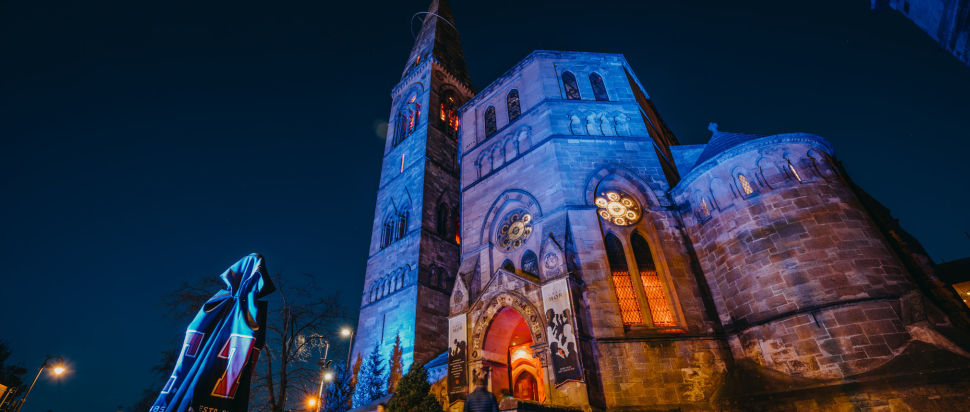Scottish Theatre Under Threat
A Play, A Pie and A Pint's new season drops at a profoundly unstable time in the Scottish theatre scene
It's a scary time to be a theatre maker in Scotland. With Creative Scotland announcing the closure of the Open Fund for Individuals, artists without institutional support are in a more precarious position than ever. As one of Scotland's best established theatre institutions, A Play, A Pie and A Pint is in a vital position to ensure that work by marginalised artists get a slice.
With funding for theatre companies also in peril, it's a tricky balance to maintain. In the past year, we've seen the rug ripped out from under some of Scotland's only programmes dedicated to new, local work. This season of A Play, A Pie and A Pint brings a mix of work to Glasgow's Òran Mór, with a total of twelve plays running from September to November. The programme is composed of predominantly new writing, though the season opens on 2 September with a revival of Greg Hemphill's Poker Alice, which ran twenty years ago in Play Pie Pint's debut season.
Jack Hunter's The Wolves at the Door will be directed by Amie Burns Walker, known for the acclaimed immersive adaptation of The Great Gatsby. The play is a dark comedy about the cost-of-living crisis and corporate greed. Walker, who self-describes as Neurodivergent and working-class, brings a community-based lens to the work. Lost Girls/At Bus Stops, by Page2Stage alum Róisín Sheridan-Bryson, will be directed by Play Pie Pint's Associate Director, Laila Noble. Noble programmed this season, and Sheridan-Bryson's play speaks to the company's commitment to giving "emerging playwrights their fair shot," as Noble says.
In my opinion, emerging artists deserve more than a shot. In staging work by early-career playwrights, Play Pie Pint inducts artists into a long-running (twenty years long, in fact) cultural institution. It's a lot of power in an ever-shrinking industry. Funding cuts continue to create scarcity, lending credence to the capitalist belief that there's just not enough to go around, especially for working-class and marginalised artists. Thus the programming of 'underrepresented' artists becomes a heroic act of preservation, not an industry-wide expectation.
The tightening stranglehold on marginalised artists in Scotland is a direct result of austerity, with no relief in sight. As long as the bar is set at inclusion and not at autonomy or agency, power will continue to be consolidated in institutions. Zooming out from Play Pie Pint, there's a united feeling of horror, anxiety and indignation in the arts sector at the moment.
Following Creative Scotland's announcement last month, nearly 200 artists and groups based in Scotland signed an open letter to the members of the Scottish government responsible for arts funding. The letter names the Open Fund for Individuals as the 'primary route to public funding' for Scottish artists. With this announcement falling at the end of an especially punishing festival season, the Scottish government's neglect of art made under its own jurisdiction has thrown the creative sector into crisis.
Cutting funding for the Open Fund for Individuals hollows out Scotland's creative heart, figuring this place as an empty theme park for festivals to pull in tourists and their money. It's difficult to feel optimistic right now, but I know that no funding cut will stop art from being made. It will, however, make new and daring work harder to find (it already has). It will make it harder for working-class artists to find the time and space to make what they want. In response, we have to keep looking for theatre that is weird, anarchic and ecstatic. We have to demonstrate through our attention that Scotland's artistic heart is still beating.
